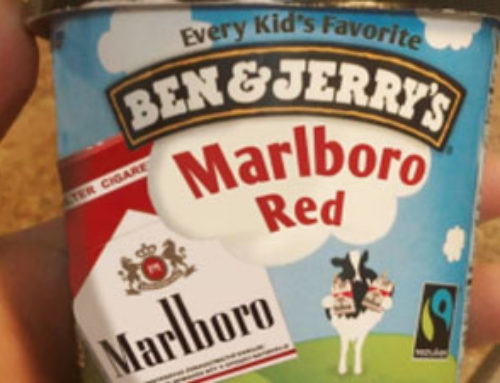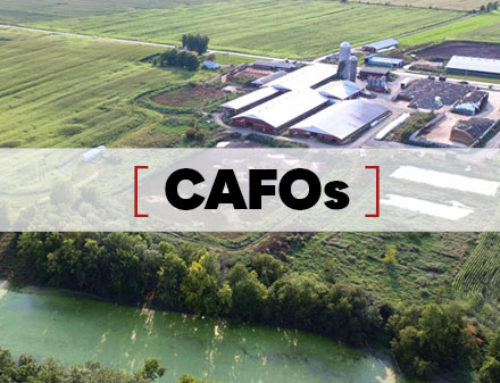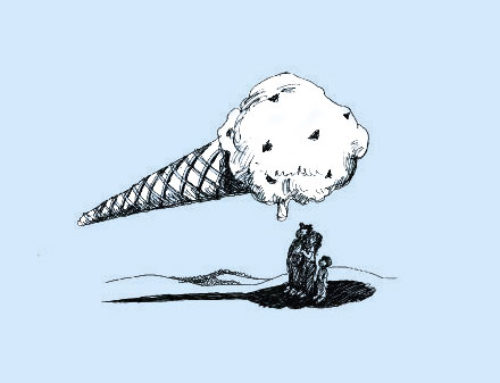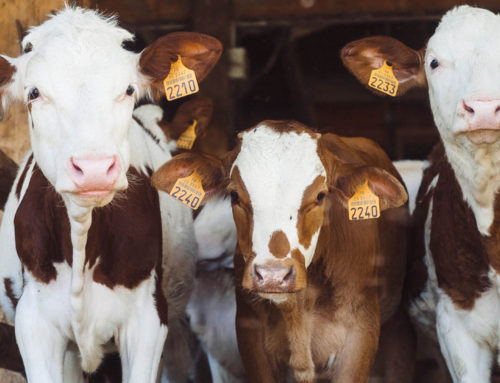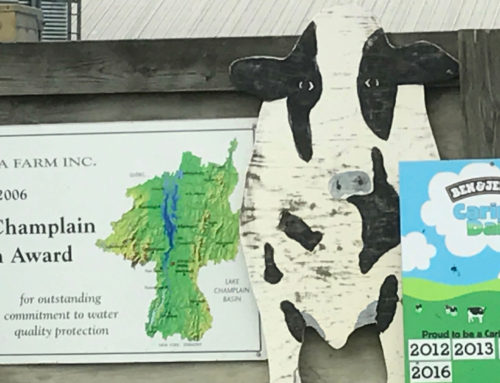Rob Hemond of Lake Carmi died nearly two years ago, and today would have been his birthday. Every water advocate and lover of the wild should know about Rob and his courageous work.
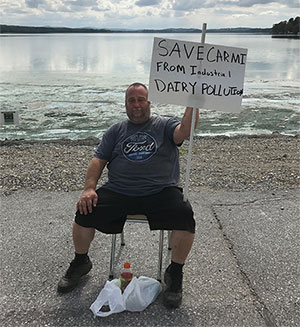
Carmi was more than Rob Hemond’s hometown lake, it was his livelihood. He and his partner, Lorraine, owned and operated Jr.’s Bait Shop out of their house just a few hundred feet from Lake Carmi’s shores. And, like any great bait shop, the advice, tips and conversations about the local lore was as valuable as the fishing lures offered for sale. Rob seemed to know about every drop of water in the region. He also seemed to know everybody.
I met Rob at a public meeting about Lake Carmi’s water pollution crisis. It was the summer of 2017, one of the worst years ever for a lake that was once so clean it was called “Silver Lake.” Carmi’s edges were frothing in a pea-soup-like consistency and color, with a smell so thick it had flavor. And the state was sending one political-appointee after another up to the region to try and calm the growing outrage. It was Secretary of Agriculture Anson Tebbetts turn to try and mollify the people on the night I met Rob.
Rob made Tebbetts very uncomfortable. He brought a jar of the green, cyanobacteria-laden water with him to the meeting, getting up and placing it on the table in front of Tebbetts. “This is our reality,” he exclaimed, in his unique, blunt style. “And we want action, not words.” It was pure activist gold, Rob’s performance, seizing the moment, turning the tables, and being real – emotion and passion included.
I went straight to Rob after the meeting adjourned, and so began an intense couple of months of camaraderie. We made immediate plans, along with other locals, to get an education from Rob, as he gladly agreed to ride shotgun as we toured his community and he showed us the damage and the causes – this green water leading to that farm, as obvious as could be to anyone who bothered to open their eyes. Rob showed us an unlicensed new manure pit being built, hidden (and illegal) farm dumps, hideous migrant worker living quarters, and one leaking manure lagoon after another.
I spent days travelling Franklin County with Rob, and hours more on the phone with him, learning about his county. Rob’s love for the natural world was infectious. It coursed through his veins, knowing every stream, hill, pond and field that it had to offer. And he was a wild man, for sure, in the native sense and, as became obvious by spending some time with him, in the mischievous sense as well. Rob would allude to certain youthful indiscretions, accompanied by a wry grin and more tales of the place he’d called home his entire life. He was as local as they come.
We made a plan to formalize these tours, to edit them down to a few hours tops and start inviting other concerned citizens, journalists, regulators, politicians, business leaders and anyone else who wanted to see the damage for themselves. It was – and still is – our firm belief that the extreme damage from the region’s cruel confinement dairies is allowed to continue because they are largely out of sight, out of mind for a vast majority of Vermonters. So we made it our goal to bring people to Franklin County to see it firsthand, with Rob as our tour guide.
Regeneration Vermont was meeting regularly with executives from Ben & Jerry’s at the time, including with its CEO, Jostein Solheim, since replaced as he took a promotion from the parent corporation, Unilever, an apparent payback for growing the ice cream giant by about a hundred million dollars a year, as directed. Never mind that much of that growth comes on the backs of small farmers and the environment, to which they are exploiting and polluting, and then letting the rest of us pay for the cleanup.
We invited a van full of Ben & Jerry’s executives to take a tour with us, Rob included, of course. This is the county, Franklin, where the majority of its primary ingredient – dairy — is produced. And yet it all seemed new to them, the barns crammed with cows on concrete, the thick, burning smell of dairy diarrhea, the toxic waterways everywhere we turned, and the harsh economic realities of a rural Vermont devastated by Big Dairy’s exploitations. It’s a long, long way from what they were used to seeing from the marketing department (“happy cows”), or on the ice cream cartons (lush pastures).
At one point, we stopped to watch liquid manure be spread copiously on a hillside, seeing it run through ruts like a spring stream, straight for the brooks that feed into Lake Carmi. And Rob did what Rob would do: He called it like he saw it.
“This is bullshit!” Rob yelled, putting a verbal shock through the van full of already nervous executives, clearly uncomfortable with the honest outburst.
“Indeed,” I offered to the silence that filled the van, among the last words spoken between us.
Tragically, Rob died from the injuries he sustained in an ATV accident just weeks later. He wasn’t out joy-riding, he was coming back from investigating a farm for actions he was convinced were being done to harass him – burning hay on a humid summer day so the smoke enveloped Rob and Lorraine’s house.
On the night of the accident, Rob called me in an agitated state, asking me what could be done about the obnoxious hay burning. I was on another call so only got his message. And when I called back, Rob had already jumped on his ATV to investigate for himself. A couple hours later, I began receiving calls from other Lake Carmi residents informing me that there had been a very bad accident, and there was little chance Rob would survive.
I remain haunted by that night, wishing I could have talked to him and maybe – just maybe – calmed him down long enough to keep him off his machine. But we lost him, his warrior soul finally and tragically silenced.
I will never forget Rob, nor will I stop fighting in his honor for the clean water he so desperately wanted for his lake, town and state.
Happy birthday, Rob. Onward, in your honor!
— M. Colby
